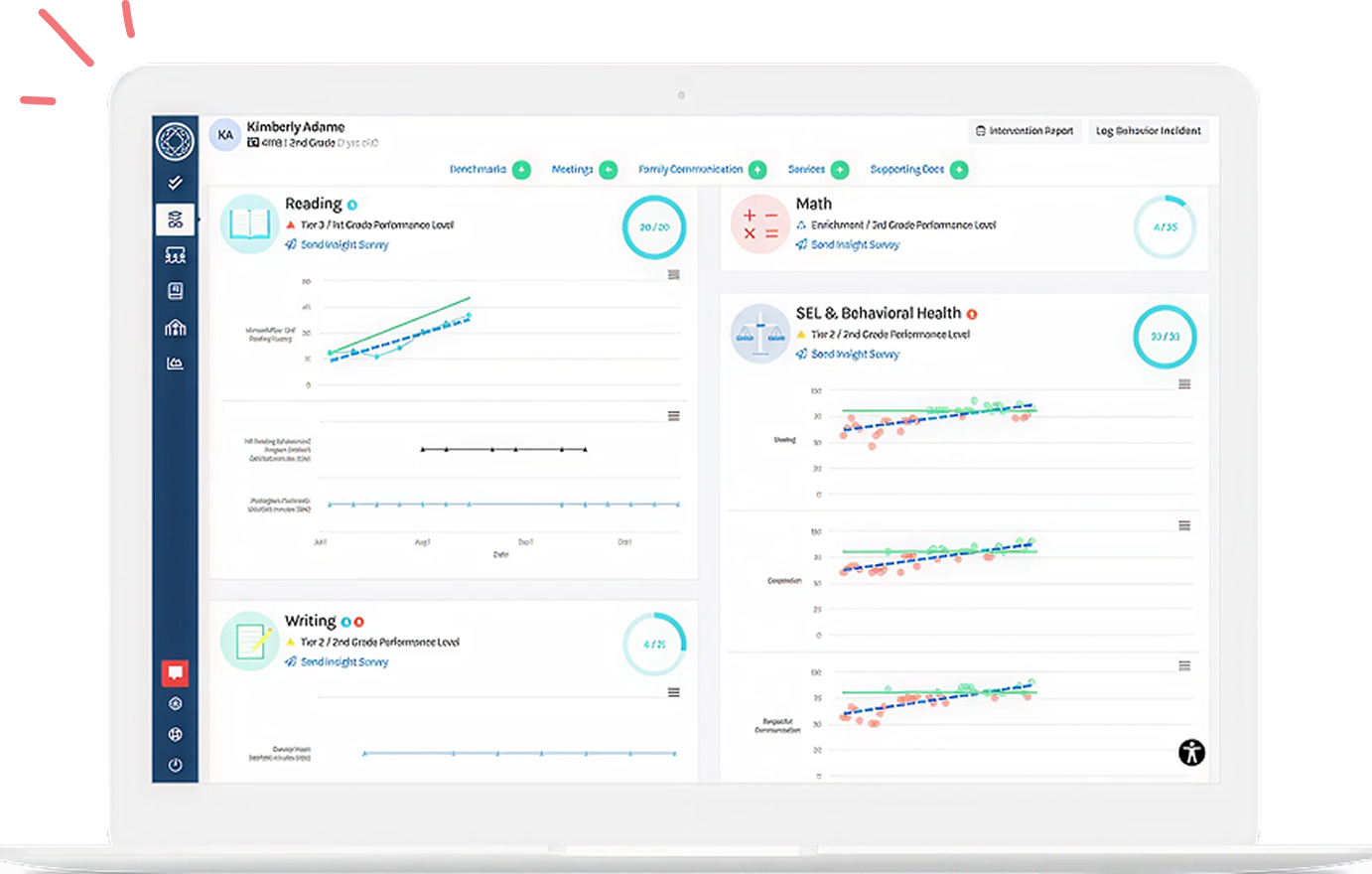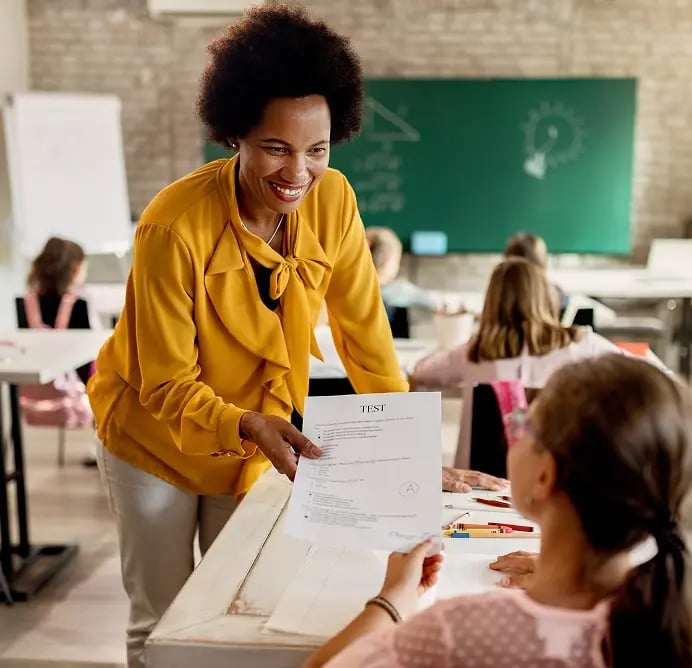In this webinar, Britt Shurley, Branching Minds Instructional Design Manager, and Trudy Bender, Branching Minds MTSS Content Manager, share their own experience with building strategic behavior support programs on elementary and secondary campuses, including a review of intervention options, real-world examples, and practical tips for implementation.
| Want to skip ahead to the webinar recording? WATCH THE WEBINAR |
Tier 2 Behavior Support in an MTSS/PBIS Framework
 For students with mild to moderate levels of misbehavior, Tier 2 strategic intervention programs are an efficient, cost-effective, and time-effective way to make intervention readily available to students who are not responsive to Tier 1 alone but who do not require intensive, individualized intervention. Tier 2 programs have a systematic approach to skills instruction, progress monitoring, fidelity, self-management, and eventual weaning from intervention.
For students with mild to moderate levels of misbehavior, Tier 2 strategic intervention programs are an efficient, cost-effective, and time-effective way to make intervention readily available to students who are not responsive to Tier 1 alone but who do not require intensive, individualized intervention. Tier 2 programs have a systematic approach to skills instruction, progress monitoring, fidelity, self-management, and eventual weaning from intervention.
Tier 2 behavior intervention programs provide structures that cue the ADULTS to interact with the student in a different way!
Campuses that implement strategic programs are seeking to ensure that students are consistently receiving increased levels of:
-
Adult Attention
-
Behavior Skills Instruction
-
Positive and Corrective Feedback
-
Academic Support
There are a variety of great intervention options that combine these components into a workable, organized program such as Check In Check Out, Meaningful Work, Structured Mentorships, Leadership Clubs, and more. Each of these options helps address the underlying needs that are contributing to misbehavior. As a result, students are often able to gain the skills and support needed to become successful.
To build and sustain behavior intervention programs, form a team and formalize processes in writing.
Tier 2 behavior programs are not a solo endeavor. It is important to form a leadership team and to collaborate with a range of stakeholders and mentors on campus and even from the wider community. The team can decide how to best screen, set up intervention programs, train teachers and mentors, and communicate with families. Student progress and family communication can be tracked using MTSS software like Branching Minds. As these systems are developed, a written plan or handbook ensures the work is captured and can be continually revisited and improved.
👉 TEMPLATE: Tier 2 Behavior Intervention Handbook
Tier 2 interventions provide a format to help build relationships, build behavioral skills, and provide a more positive school experience for students and teachers!
WATCH THE WEBINAR
Related resources you may find helpful:
Check out our WEBINAR SERIES:

About the author
Trudy Bender
Trudy Bender is the Sr. Manager of Thought Leadership Content at Branching Minds. She has extensive experience as a teacher, school psychologist, and district administrator. She previously served as the Coordinator of District Behavior Intervention for Waco ISD, where she led the district in reducing exclusionary discipline practices and disproportionality. She facilitated the implementation of a Multi-Tiered System of Supports for Behavior, including initiatives to improve school climate and universal behavior supports, provide effective Tier 2 and Tier 3 behavior intervention programs, and improve wraparound supports and transition services for students in disciplinary placements. She is a Nationally Certified School Psychologist.

Your MTSS Transformation Starts Here
Enhance your MTSS process. Book a Branching Minds demo today.
















.png?width=716&height=522&name=Tier%203%20Behavior%20Support%20Planning%20(preview).png)
.png?width=716&height=522&name=Behavior%20Progress%20Monitoring%20(Preview).png)
.png?width=716&height=522&name=5%20Tips%20for%20De-Escalation%20and%20Building%20Strong%20Relationships%20with%20Students(preview).png)